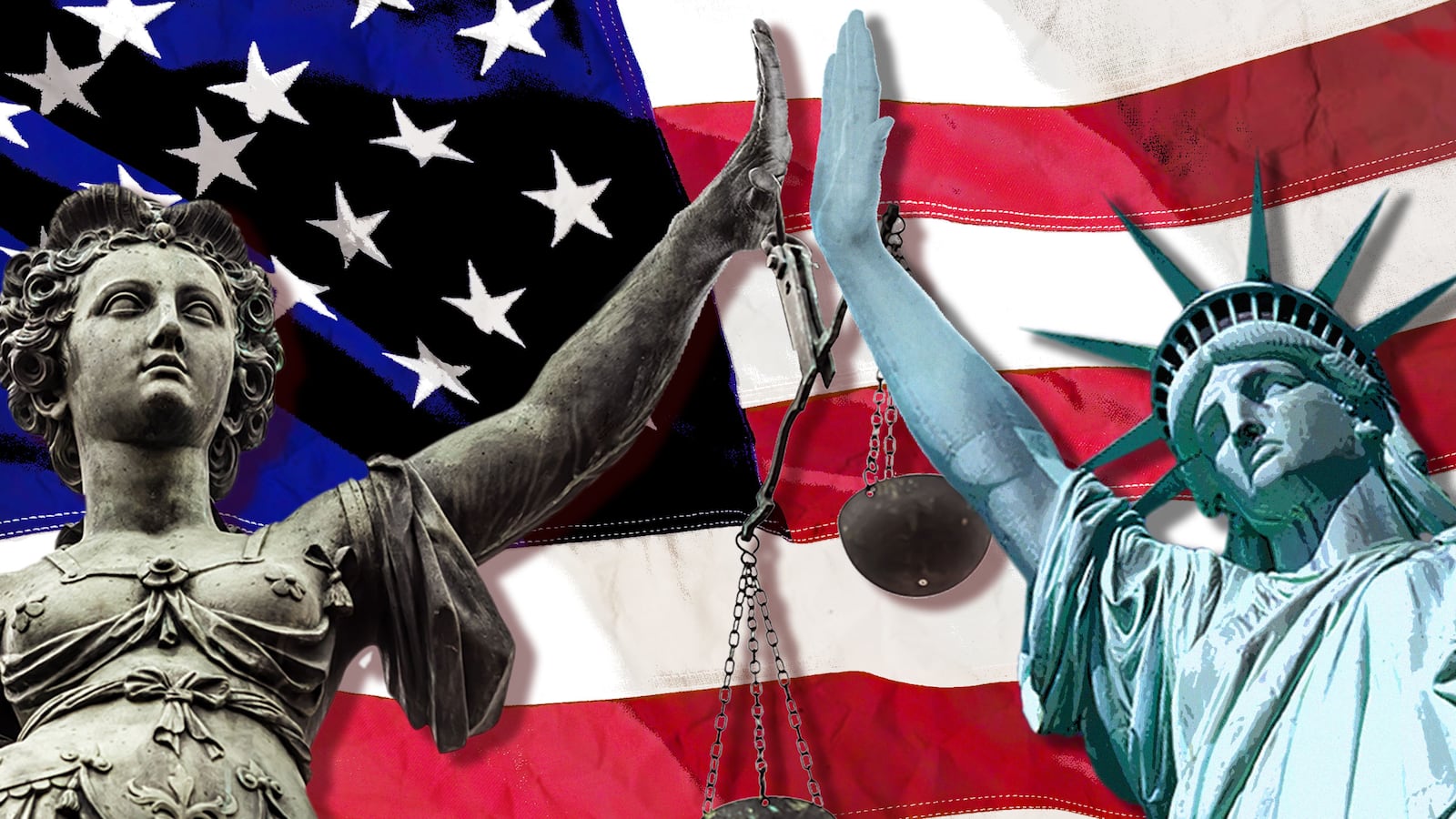The 9th Circuit Court has ruled, and the U.S. will stay open to refugees and travelers from seven Muslim-majority countries—at least for now.
At about 3:15 p.m. PST on Thursday, the court announced it had ruled unanimously on the side of the states of Washington and Minnesota, which sued the federal government over President Donald Trump’s executive order that temporarily banned a whole host of people—from Somalia, Libya, Iraq, Iran, Syria, Yemen, and Sudan, as well as all refugees—from entering the U.S.
The court’s ruling means that refugees and travelers from those countries will still be able to come to the U.S. and that Trump was handed a loss.
He retorted quickly with this tweet:
The Justice Department, whose lawyers argue for the federal government, was a bit more subtle about its litigation strategy.
“The Justice Department is reviewing the decision and considering its options,” said DOJ spokesperson Nicole Navas in a statement.
If the Justice Department decides to appeal the ruling to the Supreme Court, then their first step would likely be to apply for a stay from Justice Anthony Kennedy, who oversees the 9th Circuit Court. In that case, DOJ lawyers could announce their application for a writ of certiorari—meaning they would ask all nine Supreme Court justices to rule on the case. They will have 90 days to file a writ of certiorari, and there’s a good chance the Senate will have confirmed Donald Trump’s Supreme Court pick—Judge Neil Gorsuch—by then.
In the meantime, Justice Kennedy would be able to decide whether or not to let the government enforce Trump’s executive order.
The 9th circuit’s unanimous ruling focused on whether the travelers who the president barred from coming to the U.S. are entitled to due process under the law. The federal government argued that they aren’t, and that cancelling their visas didn’t violate the Constitution.
The federal government’s lawyers also argued that Trump’s executive order didn’t apply to people with green cards that give them the right to live in the U.S. permanently. Even though Customs and Border Protection officials initially stopped green-card holders from entering the U.S., they eventually let them in. Later, the White House counsel, Don McGahn, issued a follow-up memo saying the executive order didn’t apply to them.
But the 9th Circuit judges—Michelle Friedland, Richard Clifton, and William Canby—said that McGahn’s memo wasn’t legally binding, and that the Trump administration might go back on its word.
“The Government has offered no authority establishing that the White House counsel is empowered to issue an amended order superseding the Executive Order signed by the President and now challenged by the States, and that proposition seems unlikely,” the judges wrote.
“The White House counsel is not the President, and he is not known to be in the chain of command for any of the Executive Departments,” the judges added. “Moreover, in light of the Government’s shifting interpretations of the Executive Order, we cannot say that the current interpretation by White House counsel, even if authoritative and binding, will persist past the immediate stage of these proceedings.”
The ruling also said that even if lawful permanent residents weren’t impacted by the executive order, it still probably violated other people’s due process rights: namely, refugees; non-immigrant visa-holders who had temporarily left the country and wanted to return; and U.S. residents or institutions (like colleges) who had connections to people applying for visas.
The judges didn’t rule on whether or not Trump’s executive order violated the First Amendment, citing “the pace of the current emergency proceedings.” But they did say that the arguments from Washington and Minnesota “present significant constitutional questions” about whether Trump’s order violated the separation of Church and State.
And the judges criticized the Justice Department attorneys for declining to explain why exactly the executive order was essential for national security.
“Rather than present evidence to explain the need for the Executive Order, the Government has taken the position that we must not review its decision at all,” the judges wrote.
Their decision to bar the enforcement of the president’s ban is a huge—though temporary—win for the ban’s opponents. And it means the legal battle over Trump’s authority as president is only getting hotter.





